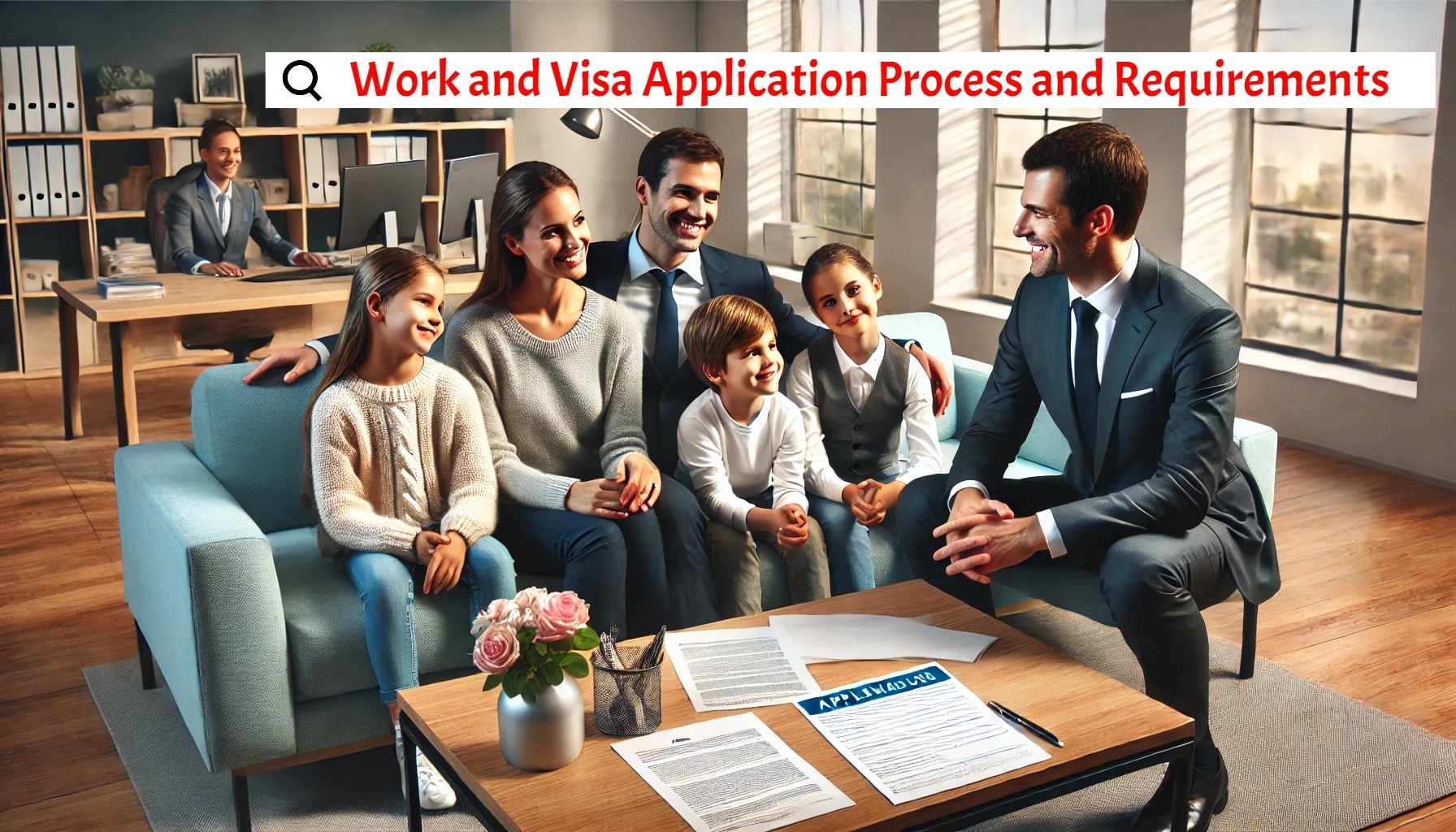Applying for a work or family visa can be daunting, but the process can become much smoother with the right guidance and information. The Work and Family VISA Application Process and Requirements needs a comprehensive guide that will walk you through the essential steps, requirements, and best practices for applying for work and family visas. We’ll also include valuable resources and external links for further reading.
Table of Contents
- Introduction
- Types of Work Visas
- Family Visa Categories
- General Application Process
- Country-Specific Requirements
- Common Mistakes to Avoid
- External Resources
Introduction
Navigating the visa application process is crucial for securing legal entry and residence in a foreign country for work or family reasons. Understanding the different types of visas, the requirements for each, and the step-by-step application process can help you avoid common pitfalls and increase your chances of success.
Types of Work Visas
H-1B Visa
The H-1B visa is a popular choice for professionals in specialized fields such as IT, engineering, and finance. It allows U.S. companies to employ foreign workers in specialty occupations that require theoretical or technical expertise.
- Requirements:
- Job offer from a U.S. employer
- Bachelor’s degree or higher in a related field
- Employer sponsorship
- Process:
- Employer files a Labor Condition Application (LCA) with the Department of Labor
- Employer submits Form I-129 to USCIS
- Approval and consular processing for visa issuance
External Resources:
L-1 Visa
The L-1 visa is designed for intracompany transferees who work in managerial positions or have specialized knowledge. It allows multinational companies to transfer employees from foreign offices to U.S. offices.
- Requirements:
- Employment with the company for at least one year in the last three years
- Managerial or specialized knowledge role
- Process:
- Employer submits Form I-129 to USCIS
- Approval and consular processing for visa issuance
External Resources:
O-1 Visa
The O-1 visa is for individuals with extraordinary ability or achievement in fields such as science, arts, education, business, or athletics.
- Requirements:
- Evidence of extraordinary ability (e.g., awards, publications, high salary)
- Job offer in the U.S. in the applicant’s area of expertise
- Process:
- Employer submits Form I-129 to USCIS
- Approval and consular processing for visa issuance
External Resources:
E-2 Visa
The E-2 visa is for investors and entrepreneurs from treaty countries who are investing a substantial amount of capital in a U.S. business.
- Requirements:
- Substantial investment in a U.S. enterprise
- Ownership or control of the enterprise
- Process:
- Submit Form DS-160 and DS-156E
- Consular interview for visa issuance
External Resources:
Family Visa Categories

K-1 Visa
The K-1 visa is for the foreign fiancé(e) of a U.S. citizen. It allows the fiancé(e) to enter the U.S. and marry the U.S. citizen within 90 days.
- Requirements:
- U.S. citizen sponsor
- Genuine relationship and intent to marry
- Process:
- U.S. citizen files Form I-129F
- Approval and consular processing for visa issuance
External Resources:
IR-1/CR-1 Visa
The IR-1 (Immediate Relative) and CR-1 (Conditional Resident) visas are for the spouses of U.S. citizens. The IR-1 is for couples married for over two years, while the CR-1 is for those married for less than two years.
- Requirements:
- U.S. citizen sponsor
- Valid marriage certificate
- Process:
- U.S. citizen files Form I-130
- Approval and consular processing for visa issuance
External Resources:
F2A Visa
The F2A visa is for the spouses and minor children of U.S. lawful permanent residents (green card holders).
- Requirements:
- Lawful permanent resident sponsor
- Valid marriage certificate or birth certificate for children
- Process:
- Permanent resident files Form I-130
- Approval and consular processing for visa issuance
External Resources:
General Application Process

Document Preparation
Preparing the necessary documents is a crucial step in the visa application process. Required documents typically include:
- Passport
- Birth certificate
- Marriage certificate (for family visas)
- Employment offer letter (for work visas)
- Financial documents
- Police clearance certificate
- Medical examination results
Submitting Your Application
Submit your visa application to the relevant immigration authorities. This usually involves completing online forms, paying application fees, and mailing supporting documents.
- USA: USCIS Online Application
- Canada: IRCC Online Application
- UK: UK Visas and Immigration Application
- Australia: Department of Home Affairs Application
Interview Preparation
After submitting your application, you may be required to attend an interview at a consulate or embassy. Prepare by:
- Reviewing your application and supporting documents
- Practicing common interview questions
- Being honest and consistent in your responses
External Resources:
Country-Specific Requirements
USA
The U.S. has specific requirements for various visa categories. For detailed information, visit the U.S. Citizenship and Immigration Services (USCIS).
Canada
Canada offers multiple visa options for work and family reunification. Detailed guidelines are available on the Immigration, Refugees and Citizenship Canada (IRCC) website.
UK
The UK has a comprehensive visa system, and requirements can be found on the UK Visas and Immigration website.
Australia
Australia’s visa requirements and application processes are detailed on the Department of Home Affairs website.
Common Mistakes to Avoid
- Incomplete Applications: Ensure all forms are fully completed and all required documents are included.
- Inconsistent Information: Consistency in your application and supporting documents is crucial.
- Missing Deadlines: Submit applications and responses to requests for additional information on time.
- Ignoring Legal Advice: Consider consulting an immigration attorney to navigate complex situations.
External Resources
CC Official Website](https://www.canada.ca/en/immigration-refugees-citizenship.html)
- UK Visas and Immigration Official Website
- Australian Department of Home Affairs
- Visa Interview Preparation
By following these guidelines and utilizing the provided resources, you can streamline the visa application process and increase your chances of a successful outcome. Remember, thorough preparation and attention to detail are key to navigating the complexities of work and family visa applications.

